Researching Migration Aspirations Among Small-Holder Farmers in the Land of Eternal Spring
By Zak Zeledon ’23
The Global Research Institute’s Summer Fellows Program provides international experiential learning opportunities to W&M students. This post is one installment of a series highlighting the 2022 Fellows’ key discoveries and formative experiences.
On June 16th, 2022, I found myself on my eleventh plane ride of the year. I had spent my spring semester studying abroad in Rome, Italy where I took advantage of the relatively cheap flights and explored many other countries around the European Union. I was exhausted, to say the least, but, by no means was I going to pass up an opportunity to see more of the world. Through GRI’s Summer Fellows Program, I headed to Guatemala City, Guatemala to work at Semilla Nueva, an NGO committed to combating malnutrition by developing biofortified corn.
I was accompanied by another Summer Fellow, Malcolm Baytop, who became my co-worker, roommate, and travel partner for the nine weeks we spent in-country. During our first week, which was filled with trainings and getting acquainted with the geography of the city, I felt like a kid with fresh eyes again. I was absorbing any and all information I could. I was elated seeing the different products at the grocery store and hearing Spanish being spoken on the regular. However, pretty soon after that, we began to dive into our deliverable for the summer: a comprehensive report outlining the migration aspirations of small-holder farmers. We had the chance to conduct our own field research and create personalized data collection instruments. The fixed timeline and many components initially intimidated me, but I was also excited about the learning opportunity of spearheading a research project from beginning to end.
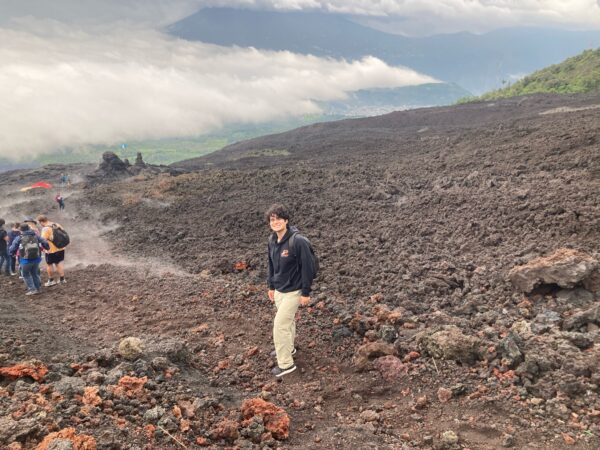
Views from Pacaya. Note the cooled lava rocks and steam emitting from the ground.
With our objective cemented, we worked together to research and write a literature review, design and test our survey and interview questions, and establish our methodology. During this period, we went through countless documents and articles in both English and Spanish to get the full breadth of information that was out there. Our co-workers at Semilla Nueva were helpful in reading over our questions and tweaking our language to check for any cultural disparities. During this time, Malcolm and I also took the weekend to visit Guatemala’s most lively city, Antigua. This former capital holds many ruins, colorful homes, intricately-designed churches, artisan markets, and the famous Santa Catalina Arch, but my favorite part of Antigua was the volcanoes that surround the city. We took an afternoon to hike up Pacaya — one of the less active volcanoes — with a tour group, where we got to meet people from different parts of the world.
Back at work, we finalized our data collection instruments, packed our bags, and set off to the Eastern departments of Guatemala, Chiquimula, Jutiapa, Santa Rosa, and Zacapa. We met with field technicians from Semilla Nueva who guided us through small towns and villages to reach farmers at their homes or at the fields they worked on. Over the course of three days, we interviewed 17 small-holder farmers who planted biofortified seeds and got to learn about their livelihoods firsthand. I am grateful for all the people who were open to talking with us and willing to participate in our study. They were all so welcoming, and their love for their land was inspiring. It put our work into perspective, making me realize that what we are doing is truly having an impact on real communities.
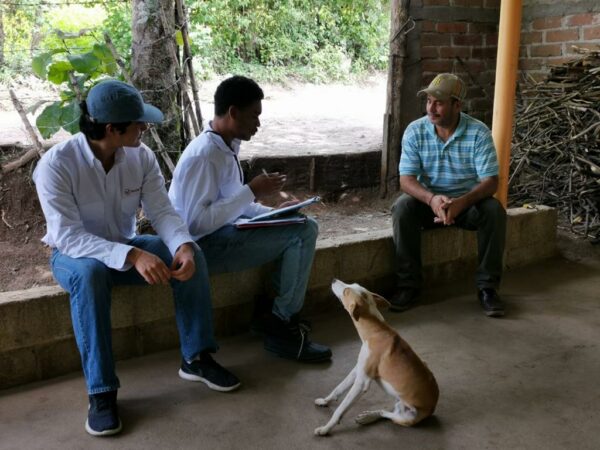
Malcolm and I interviewing a farmer in his home as his dog listens in.
The last few weeks passed by in a flurry. After taking my time adjusting and getting acclimated to all the new things, I was now preemptively missing these new things, knowing that my nine weeks in Guatemala were coming to an end soon. I would miss the typical chapín breakfast I ate every morning in the field or the 360-degree view of the sunsets from my apartment’s roof. My daily routine of getting fresh bread on my way home after work was going to turn back to running to class and eating in the dining halls. Our report concluded after conducting the data analysis and undergoing a lengthy editing process. It will be used as the basis of future data monitoring and evaluation and for public-facing purposes.
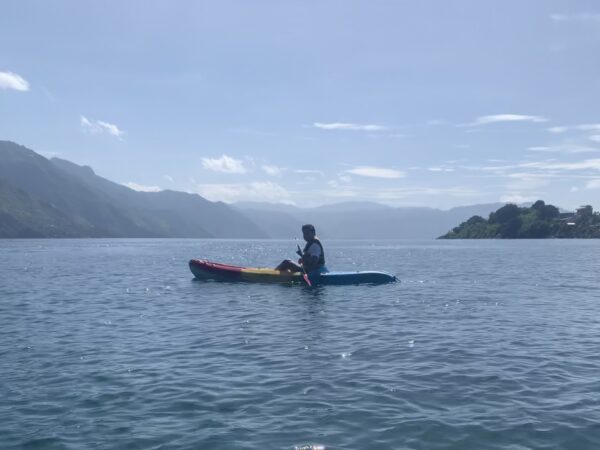
Kayaking on Lake Atitlan, another famous attraction in Guatemala
I can indeed confirm that the title of Land of Eternal Spring is accurate from my experience in Guatemala. Spring is associated with warm weather and blossoming flora which, yes, Guatemala has, but it is also a symbol of transformation. I surely grew professionally and personally during my stay, and I am grateful to the GRI and Semilla Nueva for this unforgettable experience.

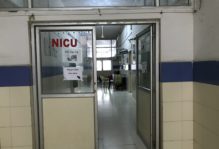
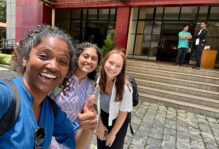
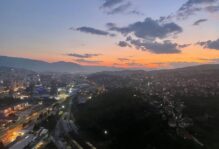
No comments.
Comments are currently closed. Comments are closed on all posts older than one year, and for those in our archive.